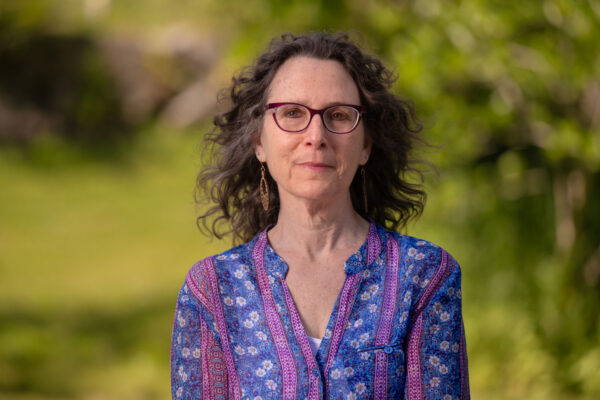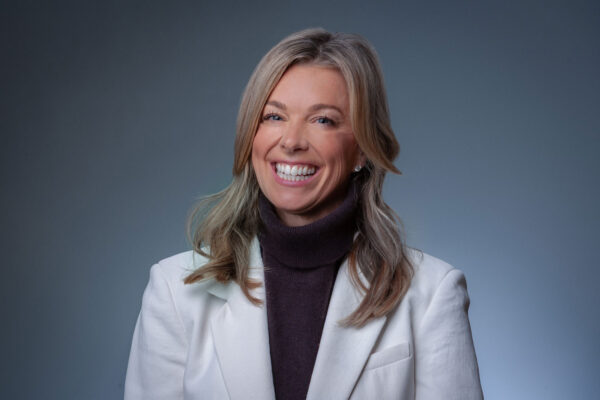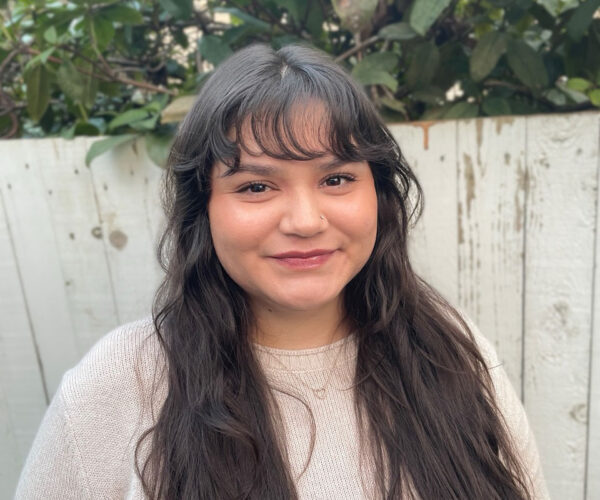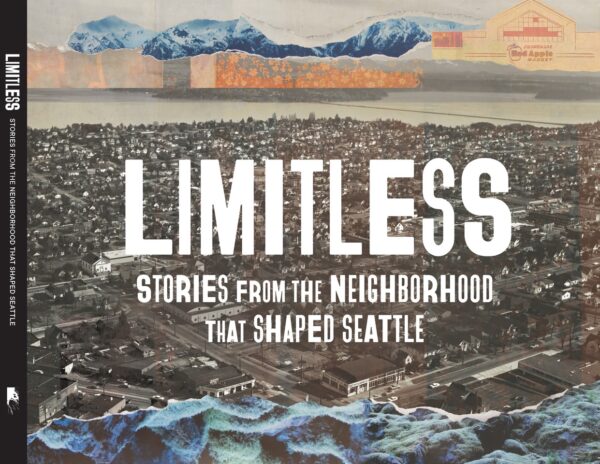“History is written by the victors” is a well-known quote with no single origin, passed along because it holds an element of truth that those in academia are all too familiar with. It’s a simple fact that keeps many scholars and researchers today working to uncover hidden, neglected and censored stories from the past — and preserve stories of the present for the future.
For Dr. Julie Shayne, a feminist scholar and teaching professor in the University of Washington Bothell’s School of Interdisciplinary Arts & Sciences, preserving feminist knowledge and stories is the driving force behind much of her work.
“I’ve interviewed women revolutionaries and feminists, and I’m very aware of the fact that if feminist scholars don’t document these things, they go away,” Shayne said. “Women have always been a part of history, but we don’t get written into it. We have to do it ourselves, which is what Gender, Women & Sexuality Studies is all about.”
In a recent paper in the Journal of Feminist Scholarship, Shayne and her collaborators at UW Bothell share how they created an online hub for the feminist writings and research of undergraduates.
Learning and teaching experiences
Shayne grew up in a progressive household and credits a lot of her interest in feminism and social justice issues to her parents. After she started college, she soon dropped out to travel to El Salvador as an activist in support of the Central American Solidarity movement of the 1980s.
She later continued her education at San Francisco State University, completing her bachelor’s and master’s degrees in Women Studies — a field that later evolved to include gender and sexuality studies. She knew a couple weeks into her first Women Studies course that she wanted to be a professor.
“I decided I wanted to be a professor and do what all these professors were doing because it was so fun,” Shayne said. “Basically, I never wanted to graduate college, and that’s what professors do. We stay in college forever.”
Shayne joined the UW Bothell faculty in 2007, and one of her early projects was the Feminist Community Archive of Washington. A digital collection hosted by the Campus Library, the archive documents and preserves the work and history of feminist social justice organizations in Bothell and the Puget Sound region. It was founded by several faculty and staff, including Shayne and Denise Hattwig, head of digital scholarship and collections for the library.
“I am deeply committed to open access and open scholarship,” Hattwig said. “So, any way I can bring faculty into that work, bring students into that work, those are the opportunities that I really prioritize.”
The pair worked on a number of projects together over the years. Nearly a decade later, they got the idea to create another feminist archive — Feminist Digital Center — geared specifically for preserving the work of Shayne’s undergraduate students.
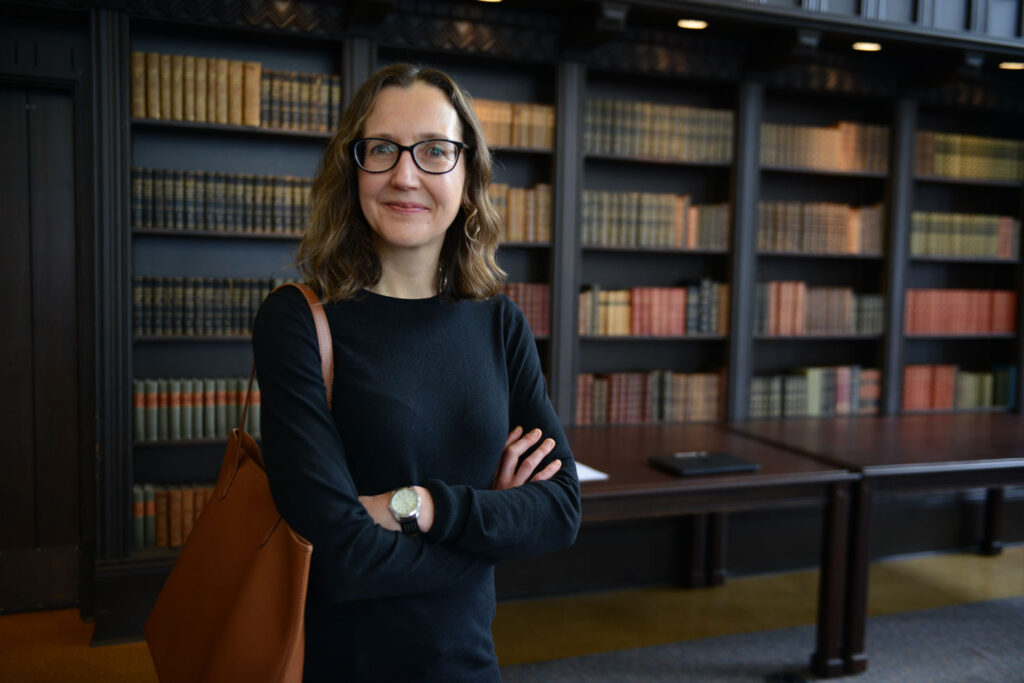
Safeguarding student voices
A 2023 UW Bothell alumna, Tessa Denton was first drawn to the campus for the Culture, Literature & the Arts major. But as she began to take more GWSS courses — several taught by Shayne — she soon decided to double major.
“In high school, we get a very sanitized version of things like racism and sexism. I really appreciated how these classes acknowledged that this is an ongoing history, and it’s not helpful to anybody to pretend that it’s in the past,” Denton said. “There’s just something about that that felt really refreshing to me and immediately led me to want to take more classes to learn more about what was actually happening in the world.”
Her enthusiasm for the subject caught the attention of Shayne, who invited her to become a peer facilitator for one of her courses. When Shayne and Hattwig were looking to make the Feminist Digital Center a reality, Denton seemed the perfect fit as someone who had both produced the kind of undergraduate work that would be featured and had previous experience developing and managing websites.
To fund Denton’s work on the project, Shayne applied for and received the Digital Scholarship Faculty Fellows Award that the library offered annually. Denton eagerly accepted the opportunity.
“One profession I had considered at the time was being an archivist. I’ve always been very interested in history,” Denton said. “I think it’s so important to preserve history and to think about how we frame it and that there’s no approach to history that is apolitical. Even student work is vital, because often nobody else is doing the same work that is happening in these classes.
“Preserving that work and making it public is key not only to the entire idea of open access research,” she added, “but it also demonstrates the importance of the material.”
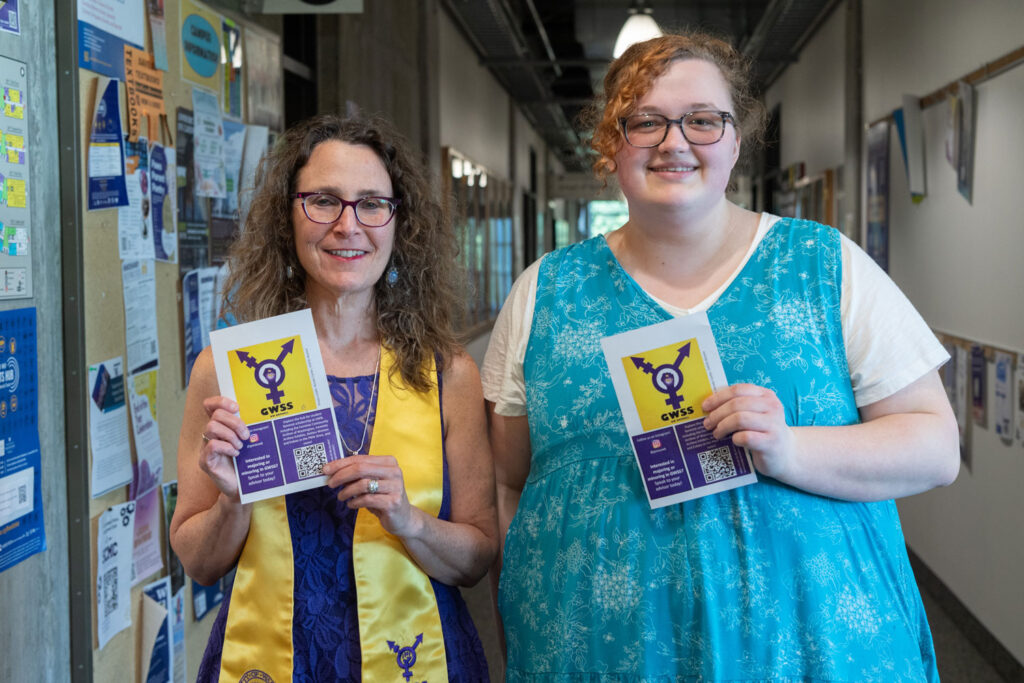
Honoring undergraduate work
While creating the website, Denton worked closely with Hattwig, who lent her expertise in open access and digital collections.
“The student experience is really a driving force for me, and it’s always really rewarding to me when I can work directly with a student,” Hattwig said. “I like to be the kind of person who can help people take their ideas to the next level and help students to find those really meaningful projects that can extend beyond their time at the University. Tessa’s work on the site was really instrumental.”
The team officially launched the Feminist Digital Center in 2023. The site was populated with student work from Shayne’s courses dating back to 2015 and built in a way that new work can continue to be added.
“I’m super proud of how this project turned out,” Shayne said. “To me, it’s everything about why I love teaching here at UW Bothell. It’s the collaboration between staff and students and myself, and the valuable contributions of students who take their work seriously. I love being able to show my students where their work will appear and that there’s a place that has the names of all of our students who worked on projects with us.”
The site includes curated exhibits on topics such as “Feminism, Gender, and Revolution in the Global South” and “Transgender Experiences: Dignity, Equality, and Joy.” Portfolios from individual classes, such as Shayne’s “The Power of Feminist Writing,” are also available, along with issues of “Badass Womxn & Enbies in the Pacific Northwest,” a zine created by GWSS students.
Most rewarding, Shayne noted, is the student response to the project and how it makes them feel that their work is worthwhile.
“Even student work is vital … preserving that work and making it public is key not only to the entire idea of open access research, but it also demonstrates the importance of the material.”
tessa Denton, Culture, Literature & the Arts and Gender, Women & Sexuality Studies ’23
Serving as more than an archive
During a time of political turmoil when stories about women and other underrepresented communities both present and historical are disappearing from government websites, the team said, this work feels especially vital.
“I have said to so many people that I really wish I was obsolete right now,” Shayne said. “But I want students who look at it to see the pleasure and joy behind this work, and I want the haters to see it’s not going away. It’s just going to get bigger.”
Denton now works in customer service for a community library and said she uses the knowledge and skills she learned in both her majors every day. The Feminist Digital Center, she added, is one the most memorable parts of her undergraduate experience, and like many of the students featured, she loves knowing her work will live on in the archive.
“Each individual entry is made with purpose and with care and love for the communities we are a part of, that we are connected to and that we care about,” she said. “There is so much purpose and intent behind this entire website, and it’s so much more than just a place to put our academic work.
“It’s a place to put our very hearts.”
Dr. Julie Shayne will be teaching two classes in winter quarter 2026 in which students will produce work for the Feminist Digital Center: “The Power of Feminist Writing” (BIS 490) and “Histories and Movements of Gender & Sexuality” (BISGWS 302). Interested students can register starting Oct. 30.
